EarthRenew (ERTH.C) is a Canadian-based agri-tech company attempting to revolutionize crop fertilization through a patented and sustainable thermal treatment of livestock manure. Eliminating all potential pathogens without charring or burning, the processed livestock manure is combined with environmentally friendly additives for a proprietary blend which is easier to store, spread and maintain, while increasing yields from 20 to 40 percent versus conventional chemical fertilization.
The company is currently working to expand its line to include organic blends for different nitrogen, phosphate and potassium ratios. EarthRenew’s process utilizes the heat from the exhaust of a natural gas turbine generator, enabling the company to sell electricity produced during treatment to the host farm, another third party and/or the grid. EarthRenew’s facilities, from dryer to processing plant, is modular and scalable, utilizing up to 85% of the energy in fuel which increasing heating efficiency over 60% compared to conventional heating methods. If the science around crop cultivation is a mystery to you, you’re in the right place.
Hi, I’m Maddy Grace and this is Five Easy Questions where we break down the market in simple terms for the new investor. Today I am speaking with Keith Driver, CEO and director of EarthRenew, tune in!
Full disclosure: EarthRenew is an Equity.Guru marketing client.
Transcript:
Maddy Grace
EarthRenew is a Canadian based agriculture tech company attempting to revolutionize crop fertilization through a patented and sustainable thermal treatment of livestock manure. Eliminating all potential pathogens without charring or burning, the processed livestock manure is combined with environmentally friendly additives for a proprietary blend, which is easier to store, spread and maintain while increasing yields from 20 to 40 percent versus conventional chemical fertilization. If the science around crop cultivation is a mystery to you, you are in the right place. Hi, I’m Maddy Grace and this is Five Easy Questions where we break down the market in simple terms for the new investor. Today, I’m speaking with Keith Driver, CEO and director of EarthRenew. Thank you so much for joining us today, Keith.
Keith Driver
Thanks for having me, Maddy.
Maddy Grace
OK, I’m just going to jump right into the questions. So, number one, what are the methods and products used in conventional chemical crop fertilization?
Keith Driver
Wow, so there are lots of crop inputs that are used. The difference between, say, the traditional conventional agriculture, is that they provide nutrients to feed the plant. So there’s sprays and there’s all sorts of potions and lotions that are put on throughout the crop cycle. In regenerative and organic ag, we feed the soil to feed the plant. So we’re talking about putting carbon back into the soil. We’re talking about putting nutrients back in the soil or about building the microbial community in the soil so that the plants can grow more naturally and sustainably.
Maddy Grace
Amazing. That was that was very succinct. All right, what is EarthRenew’s treatment process?
Keith Driver
So we do a couple of things. So we take undervalued organic materials, whether it be livestock manures or other organic streams from the food processing space. And we treat them using the waste heat. So the spare heat left over from electricity production and we use that to dry the material. Once we have that material, we then combine in all of the naturally sourced ingredients that make up a whole fertilizer solution. So we don’t sell ingredients to farmers. We sell them pelleted solutions where they can store them, they can apply them as they’re applying the– putting the seeds in the ground and that lasts throughout the season and build the soil as opposed to just spraying and praying that the crop will grow.
Maddy Grace
Great. Alright, why are we facing a potential food shortage globally by 2050?
Keith Driver
It’s a people problem. You’ve got– going from seven to 10 billion people. The part of that that people don’t necessarily recognize is that’s going to require 70 percent more food. People are moving up the food chain. More people want to eat chicken, more people have to find ways to feed the things that feed the chickens and so forth it grows. To put it in context, we need to find a land area– a productive land area the size of the country of Brazil, to be able to grow enough crops to feed the world. And last I checked the world’s round, there’s nowhere else to find. We don’t have that. So we have to build back those soils. So even with things like plant based proteins, you need to grow those peas and other legumes to be able to make those proteins. But every acre of that that goes into production, there’s an acre of wheat or canola or something else that’s not grown. And so we’ve got to find a way to build back the soils to make them more productive so that we can feed a growing planet.
Maddy Grace
All right. What is a circular economy and why is it so important?
Keith Driver
Wow, big questions early in the morning. So the circular economy is the art of finding byproducts from one industry that you can upcycle and turn into feedstocks for another. So that eventually you’ve got this cycle where the nutrients from producing– in our case, we’re on a cattle feed, so’s the manure from the cattle. We gather them up, we dry them, we turn them into high value organic fertilizers that go into growing crops. And those crops feed people and those– you know, in theory of those nutrients just cycle their way around. And so it’s a zero sum game, there’s only so many nutrients and so much material we can produce off the land. And so by putting the nutrients back in the land where they’re productive and not considered as pollutants or runoff from large area feedlots, you end up creating this circular trend which spirals up as opposed to a circle of pollution which would cycle down and cause a challenge.
Maddy Grace
Right, and that’s that’s what we’re in now, right?
Keith Driver
Unfortunately, the cycle has not been good, so farming is essentially mining the soil and so over generations to push more productivity, we’ve thrown more chemicals at it. We’ve mined the soils and the soils are actually depleting in their ability to be productive. So it’s like a treadmill. You got to put more chemical fertilizer in and more other inputs in to make that happen. And we’ve spiraled our way into a point where now this movement towards regenerative agriculture is really infectious because farmers want to be good stewards of their land. And by giving them the tools to do so, they’re cycling up. They’re making their farms more productive, which make them more sustainable, which makes them more profitable, which will incent farmers to continue to produce the food that we all need.
Maddy Grace
Oh, my gosh, that was that was a big question. I didn’t realize when I asked it. What are EarthRenew’s environmental, social and corporate governance criteria.
Keith Driver
Sure. So by default, we have this sort of environmental mode. I have two degrees in environmental engineering and an MBA in environmental management. So you slice me and I bleed green. But what we’ve done, is we use that as a means of identifying the feedstocks that we would use. So we take waste heat. So a heat that was otherwise being displaced to the atmosphere. We take a waste product, the manure from the feedlot, we put the two together and we come out with a productive natural fertilizer that doesn’t leach. So you don’t end up with runoff into waterways and phosphorus blooms and all those sorts of challenges. So from an environmental perspective, that’s key. From a social perspective, we think about the farm and it moving generation to generation. As the generations grow, the land has got to be more productive so that it can support the next generation of farmers. So if there’s a family that’s a farmer and there’s two kids, well that farm’s going to be able to support the two families and and so on and so forth down the chain. And eventually you have to find higher value. So the more valuable and productive we make these farms, the greater and stronger those communities can become and those families can remain close. It’s a way of life. And you don’t have that bleed to urbanization. From a governance perspective, we’re a publicly traded company. We’ve put all those processes in place. We’re looking for gender parity on the board. We’re headed in those directions. And I, I– it’s hard to talk about that because that’s just sort of the way we’ve approached it. I’ve taken my governance course through the University of Calgary so that I could put these processes in place. I just wouldn’t know otherwise. But there’s a real heavy on the ESG side. I’d say we’re super heavy on the E. There’s a byproduct of this social benefit that comes from making farms more productive. And inherently, as a company, we’ve committed ourselves to strong governance to make sure that we build in a diversity of opinions, but also make our company resilient for an evolving economy.
Maddy Grace
Oh. These these types of things are so reassuring to me, and I feel like my whole young up and coming sort of generation, we’re like, is someone up there doing something to help?nSo this is amazing. I love your company as a sidenote. OK, now I just have a really quick little rapid fire round for you.
Keith Driver
OK.
Maddy Grace
Yeah, ready?
Keith Driver
Yup, all ready.
Maddy Grace
Okay, tea or coffee?
Keith Driver
Neither no hot beverages.
Maddy Grace
Oh my gosh.
Keith Driver
I got a delicate palate.
Maddy Grace
What is the first thing you do in the morning?
Keith Driver
Check my email.
Maddy Grace
What is your favorite sport to watch.
Keith Driver
To watch? I grew up playing Ultimate Frisbee competitively. I actually went to world’s three times. So my favorite sport is when I get the chance to watch a tournament final. And I know it’s a niche thing, but yeah.
Maddy Grace
It’s great. So I assume that answers my next question. What is your favorite sport to play?
Keith Driver
No. So I love playing Ultimate Frisbee. I did it for a long time. I was a boxer and I loved everything about boxing except getting punched in the head.
Maddy Grace
Yeah, that’s how I would feel too.
Keith Driver
Yeah. So I have a massive belt at home from this championship that I won and it was a huge moment of pride for me. And then I turned 40 and my last fight, someone punctured a rib– broken rib, punctured lung. And I haven’t been in the ring since, so I miss it the most.
Maddy Grace
Oh wow, cat or dog?
Keith Driver
Grew up with cats – fearing them. I love dogs, but I am so busy. I make myself so busy that if you want to go to yoga six in the morning and you get a dog, there’s no way to do it. So Fishy – literally a fish named Fishy.
Maddy Grace
That’s great. Innovative. Favorite book?
Keith Driver
Oh my goodness. A Prayer for Owen Meany.
Maddy Grace
Oh wow.
Keith Driver
I read it when I was a kid. And it’s the story– for those who don’t know, John Irving wrote it. And for me it’s a story of a boy who goes his entire life as being sort of special needs and a bit different. And everything in his life prepares him for one golden moment where he realizes that all of his talents are what’s going to save the world or whatever. And it was that sort of inspiring to me of, yeah, you’re a bit weird as an entrepreneur you tend to be. But at some point, all of those skills like my engineering and my MBA and all that all of a sudden comes together. You’re like, oh my gosh, like it’s like this is the moment, right? The loud music plays in the background of the movie and all of a sudden the hero comes forward and try. And that’s that was my book growing up as a teenager.
Maddy Grace
Oh, that was beautiful. That was a great answer. OK. Oh, value investor or day trader?
Keith Driver
A value investor. I’ve almost exclusively been a private equity investor until quite recently, and I just can’t get over the fundamental view of what makes a good company and what makes a company that I’m happy to be associated with. So I see it for me particularly because a lot of my investments and all that have to be disclosed, is that it’s reputational to me. So why would I look at a company that goes against my values when there’s so many good companies that are– that speak to me and and I get some value out of associating myself and my dollars with. So for me, it’s definitely long term value investment.
Maddy Grace
Value investor. Suit and tie or casual?
Keith Driver
I don’t own a suit. I own a number of sports jackets. I have never– I shouldn’t say I’ve never worn a tie. I’ve never willingly worn a tie. I wear steel-toed boots every day because I never know if I’m going to be out at the plant or in the field. And if given my druthers, I follow the Barack Obama’s plan for dressing, which is you have one set of jeans, which I have. I have five pairs of the exact same jeans and then a rotation of golf shirts and dress shirts. I dressed up nice for you today, so you would know me because I looks like I recycle the same clothes every day, but I just have a closet full of the same things. So when I wake up in the morning, I don’t have to make any decisions and this is as good as it gets every day. And I take it on– take on the world.
I love that, I think that’s brilliant. One of my favorite writers, Fran Lebowitz, does the same thing. You probably have matching clothes. She wears like all men’s clothes. It’s amazing.
I’m going to look that up afterwards to find out if that was a compliment or a subtle dig.
Maddy Grace
Oh, she is my idol. I promise you it is. If you had a thousand dollars to invest, what company would it be? Not your own.
Keith Driver
What company would it be? There’s a really cool water lentil company in Vancouver called the trade into the symbol Hulk, H-U-L-K? And I’ve watched them since they started as a Kickstarter and there’s– Yeah, I think it was a Kickstarter or Go Fund Me or some one of those. I watch them all the way through and I’m just, like, in awe of what they’ve what they’ve done. I got to meet them, like when they didn’t have two pennies to rub together. And they built this really interesting story where they’re just so driven. And I just think that’s probably where I put my put my money. It’s called Pontus Protein. Yeah, H-U-L-K is the symbol.
Maddy Grace
H-U-L-K. Awesome. And last one. What was the last movie you watched?
Keith Driver
Oh, my goodness. So we’re in the dark days of covid and there’s a nineteen ninety one Bruce Willis film called Hudson Hawk and it is marginally passable but so fun to watch, having not seen it in almost 30 years. And to see a Bruce Willis– like I thought quite highly of Bruce Willis as individual. And to see him 30 years ago, it was just the perfect thing to do on a Thursday night when just that was what I needed. It was just like right place, right time. And Bruce Willis, you know, I say he doesn’t disappoint, but he didn’t disappoint 30 years ago now that I watched it now.
Maddy Grace
Right? Oh, that’s I’ve never seen it. But I can see Gaalen, my coworker in the corner, who won’t be in this video laughing his head off. He he approves of this message.
Keith Driver
I don’t endorse the movie, but it is worth– like when you find like I have no idea what to do, just think of that and it’ll be, you know, it’ll scratch a itch for me.
Maddy Grace
We all need good movie recs. OK, that is all the time we have today. Thank you so much for joining us.
Keith Driver
Absolute pleasure.
Maddy Grace
And hopefully we get to talk to you again in the future and hear more about your amazing company.
Keith Driver
Thanks very much. Have a great day.
Maddy Grace
Thank you.

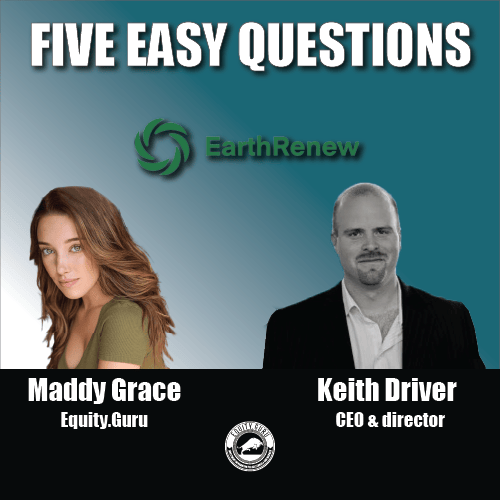
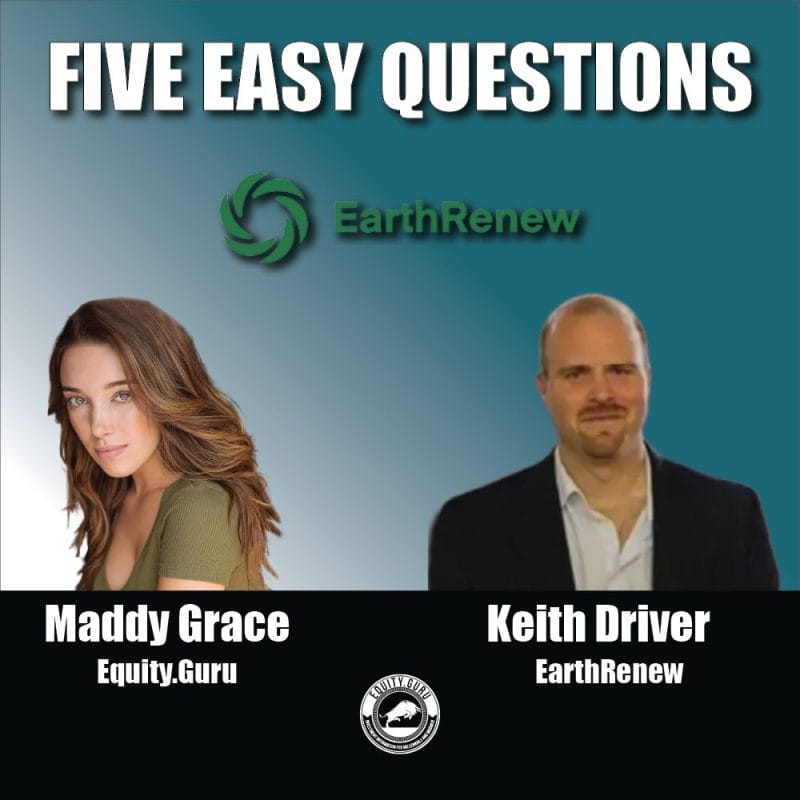
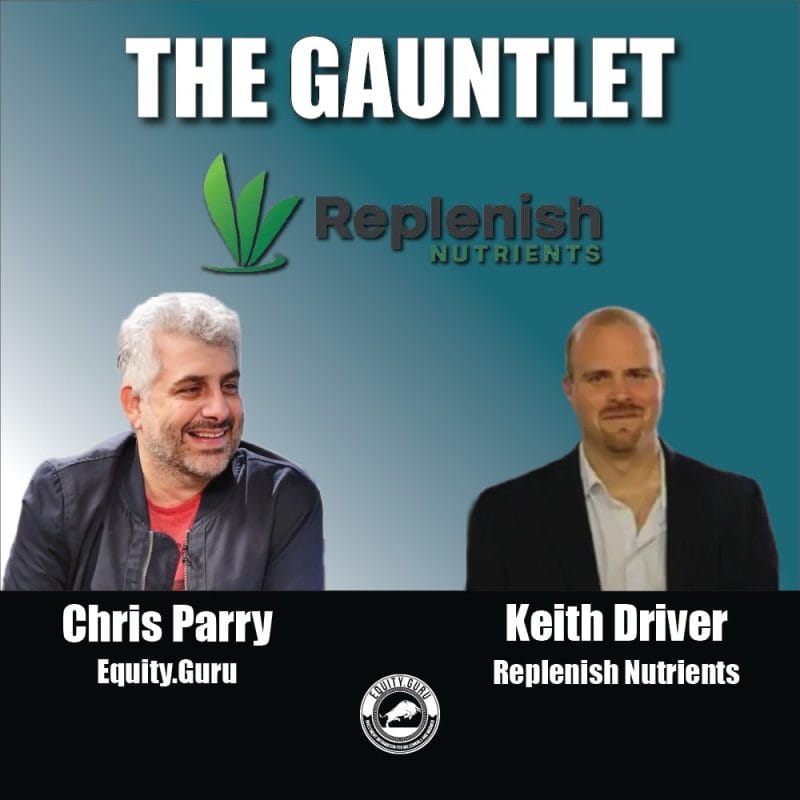
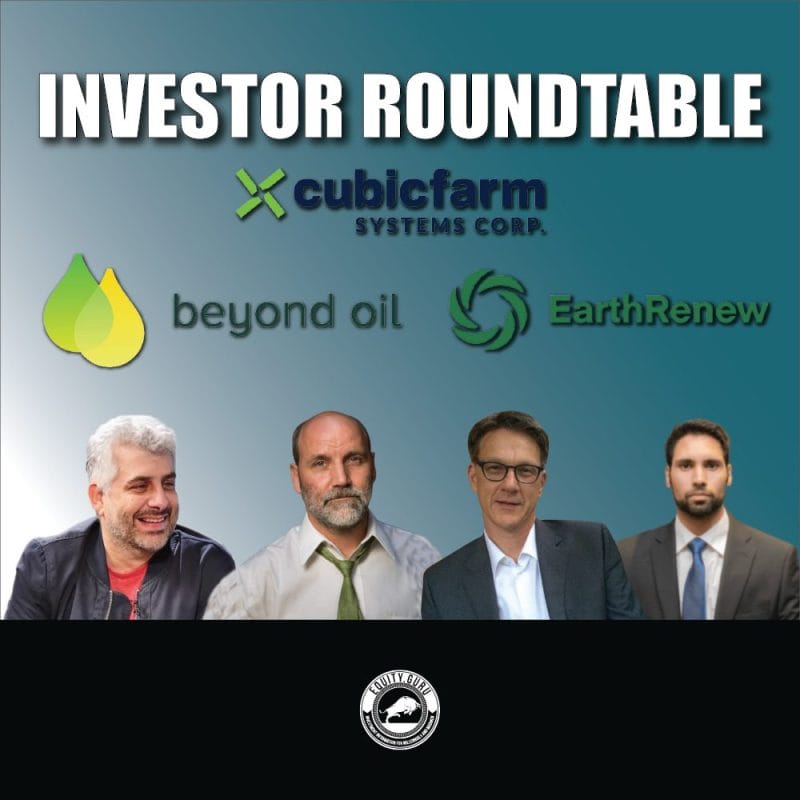
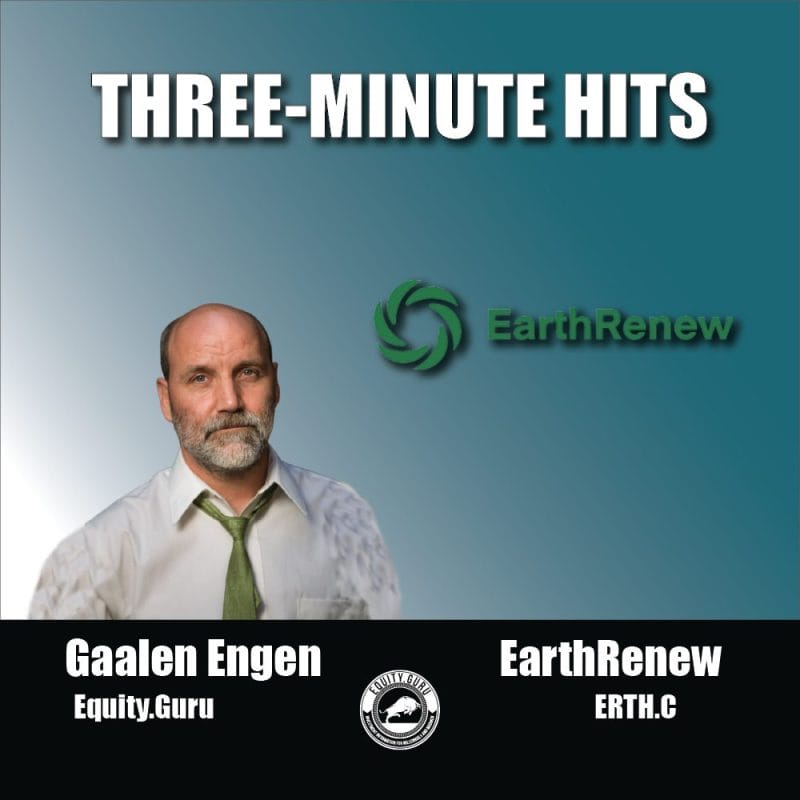
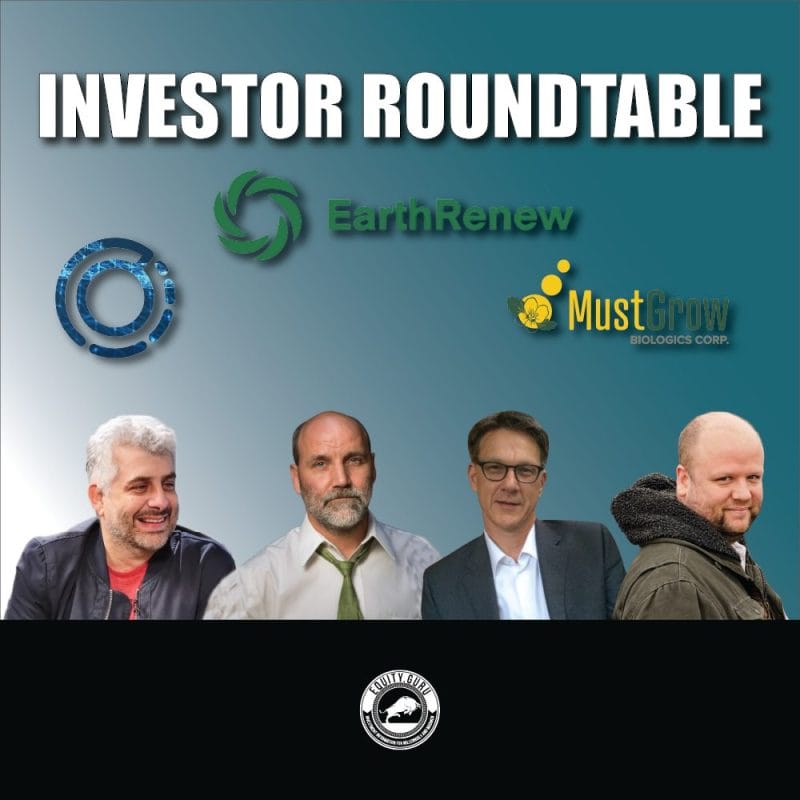
Replenish Nutrients (ERTH.C) – First Glance with Jody Vance E104